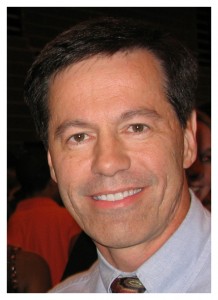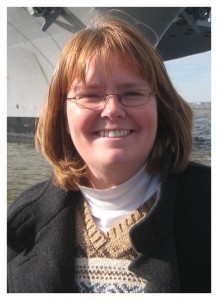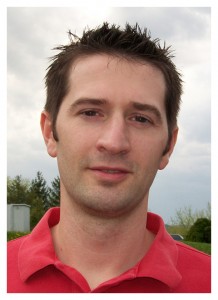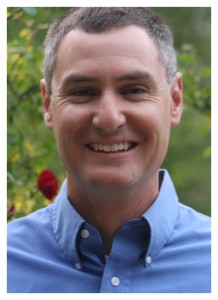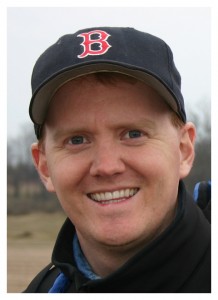Personal Lessons
Dan Flynn
I was a late addition to our Mid-Atlantic SLI, and received rather direct prompting from the Lord to participate (a story for another day). I am glad I followed His lead. This has been a very rewarding experience for me.
1. I’ve learned that I really enjoy working with a team of peers. It’s been a delight to labor with other seasoned staff to tackle an issue of dire importance. I’ve loved our camaraderie and commitment to this cause.  The team’s willingness to “get under the hood†of this project helped me feel I was part of something important—which is a big value in my life. I long to make a real difference. Nothing less will do.
2. I’ve loved the intellectual stimulation from our readings, analysis, and discussion. It has sharpened my mind and heart to be proactive in reaching a changing generation of collegians. In fact, I’m now often going outside the borders of CCC to investigate new thinking in the areas of culture and evangelism and have imported some of this back to my campus. It’s nice to feel “out front†rather than in “reaction mode.â€
3. Putting my thoughts to paper has helped me become more precise in my communication. I enjoy writing, but have had few opportunities since college to persuade via this vehicle. I’ve always been enamored with the communication/persuasion process, and this ALP has furthered my desire to “get it right†in communication. This dovetails with my minor role in Keynote’s Comm Center initiative.
4. Our research into culture has left me feeling significant dissonance as I consider the future of our mission. The US looks worse than I was willing to concede. (For example, I just read that 52% of evangelical believers, age 18-29, believe that there is more than one way to heaven). Such young “believers†cannot pass on what they do not possess. If we are going to change our nation and send capable laborers to the world, we must reengage the only One capable of accomplishing this: Jesus. All this has reminded me of my primary need to get on my knees for my campus.
5. It’s been a delight to be exposed to joyous leaders both inside and outside CCC. People inspire me: their choices, their strivings, and their character. This ALP has afforded me many examples of godly men and women who have sold everything to buy the pearl of great price. I’m indebted to their example.
Joey Payne
This Action Learning Project (ALP) has taught me to slow down and solve problems more comprehensively, develop healthy team norms, and to invest myself in reading books and articles that will advance the Kingdom—among other lessons.
1. I have tackled many problems inside my ministry, but never this thoroughly. I work for a ministry that reacts quickly to natural disasters. Global Aid Network always seems to move fast and solve problems along the way. This ALP has taught me to slow down when facing a complex problem—and draw on more resources than just one.
Studying six “streams†of research all converging onto one solution was an eye-opening experience. Through the interviews, books, surveys, and other sources, I saw a more comprehensive view of the problem than I am used to dealing with. It was exciting, but also a bit overwhelming. What do you do with so much information—some complementary and some contradictory? Over the months, our team learned how to “digest†the facts of this issue. I experienced times of quick assimilation of facts—and quick decisions. Other times, we slowly dissected the stats, quotes, books, and other facts to piece together a clear view of the problem and a possible solution. It was grueling at times, but an incredible lesson in teamwork, persistence, and problem solving.
2. My favorite part of this ALP has been my team. Discussing our team “norms†was very freeing to me because, at first, I was not sure how to interact with a team that was so vastly different from what I am used to inside my own ministry. But it was those differences that taught me the most. Getting to know staff members who are so passionate about the Campus Ministry has brought me a new level of respect for this partner ministry inside Campus Crusade. Their “team norms†have taught me a lot of things I would like to bring back to the GAiN team—especially the high value of relationships in the context of staff life, ministry, and especially family life.
3. Also, my teammates were an amazing resource to my educational experience. As we discussed different issues around the ALP, very often one of the guys on the team would mention, “Have you read a book called…†With their help, I found many quality resources that will help in my ministry. They say “leaders are readers.†I saw that truth in my teammates.
Roy Baker
1. You can get more done with the right team: I felt like we functioned well as a team. Since we were seasoned leaders there was a greater self-awareness of what each person could bring to the table. This made delegation and roles much easier to assign.
2. The problem of evangelism effectiveness is a complex one: we knew going into the ALP that we wouldn’t find a “silver bullet†answer. Through the research we discovered:
a. The current culture doesn’t want us to preach to them.
b. Most CCC staff know this is true, so staff have done it less or have shared their faith with an ineffective method and are unsatisfied.
c. Most of our converts are coming to Christ through relationships with their Christian friends.
d. We must value being Biblical and resist the temptation to only be pragmatic.
e. We must become better equipped with invisible tools using a dialogical approach in order to connect with our current target audience.
3. We must cultivate Christ dependent environments regardless of strategy: for me personally I often found that I can get so tied up in working on strategy and problem solving with the hopes of becoming self-dependent and effective. It would be a tragedy if Christians found a “secret weapon†in evangelism and trusted in that “tool†instead of Christ.
4. Things I learned about myself:
a. I functioned better with deadlines. Things become “out of sight out of mind†for me. I will procrastinate without a deadline to force me to stay on task.
b. I am more aware of my insecurities. I was impressed to work with so many talented team members. There were times when I felt I had little to offer. I can’t articulate my thoughts as clearly or efficiently as others.
c. I need assignments such as this to help me grow. One of the reasons I wanted to do the SLI is because I don’t own my own development as much as I should. Being a part of something like this provides me with accountability and exciting challenges that spur me towards growth.
Scott Blom
Being on the MA SLI has been a great and difficult experience. I am not happy that my commitment is over, neither would I sign up for another two years knowing what I know. I guess it is neither all good nor all bad! I would like to look at three areas where I have noticed the Lord working in my life directly as a result of being a part of this team and especially being a part of the team looking at evangelism effectiveness.
1. The Lord has exposed areas of great pride in my life over the past two years. Our team has worked incredibly well together (if there has been any unhealthy conflict I am oblivious), and the capacity of everyone else on the team has highlighted many of my inadequacies calling out areas of hidden pride in my leadership abilities. Bottom line, I am not “all that,†and I need a great working team around me.
2. The Lord has used our study to bring me back to a place of hunger for evangelism. Without a doubt I would fall into the category in our ALP of “staff who are unsatisfied in evangelism.â€Â I am not convinced that we (organizationally) are all that good at engaging the lost, and I certainly am not convinced that we are helping the lost encounter the life-giving Gospel. I have seen “success†in evangelism as defined in our measurements (and organizational culture), yet I can hardly count success when I see a person indicate a decision for Jesus, and then I never hear from them again. I have felt like a fraud working for Campus Crusade and strongly disliking evangelism to the point where I was ready to: a) stop doing evangelism or b) leave staff. Our work has highlighted that my feelings are what the majority of staff feel. What we have worked on is the foundation of what has become my personal hope for Campus Crusade (in the US…), that our efforts to see more people become life-long disciples of our marvelous Savior. Bottom line, I am pretty sure that this may have been the most significant issue that I have engaged with in my 15 years on staff. I am hungry to see us really/significantly reach the lost in this culture. What the Lord has done, I pray He brings to fruition in the lives of staff across our ministry.
3. I am overcommitted. The requirements of participation in SLI was to give 15% of my time—at times I have been hard pressed to give just 5% of my time and I know my team has felt my absence. August 2009 I accepted increased responsibility for our campus teams working with cadets/midshipmen. Maybe it’s a similar issue to point 1 but I cram more into my schedule than I can do well. I am confronted with the reality that if I do something else, I need to weigh that against what I will be forced to stop doing.
Tim Henderson
I have loved working on our ALP to increase staff satisfaction and effectiveness in evangelism. It’s just one ingredient in the overall SLI experience which has been life-changing for me. Five things stand out to me as lessons learned (or rather learned more deeply) as we’ve labored through this process.
1. I love problem solving.  I love discerning what’s wrong, thinking about why it’s wrong, and what we need to do to fix it. I love strategy sessions and reading what smarter people than myself have already written about the problem. I love pondering alone and with a group. I love the “aha†when something clicks and the problem is cast in sharp relief, or better yet when a solution emerges.
I have sometimes thought during this year that if I could have a job where my focus was just to solve problems I would really love it. Then I realized that I already have that job: I’m a campus director. This assignment is in the sweet spot of what I think God wants me to do with my life.
2. I love working on a team. I can work alone, but life is sweeter when I am working with others. It makes me happy when someone else on the team has a great insight and when we experience synergy. It’s a pleasure to see my weaknesses compensated for by a team member. In the weeks when my day job keeps me from contributing to SLI, I am comforted to know that others are hard at work, making progress for the team. I’m grateful that Crusade highly values teams.
3. I love evangelism. I enjoy talking to people about Jesus. It’s fun to discern the next best step for them, and to trust the Spirit to enable me to say what they need me to say, or ask what they need to be asked. God rarely uses me to help someone cross from death to life and that has sometimes been very discouraging for me. But I think he often uses me to help someone think about the gospel and understand the critical issues surrounding it. That is a pleasant role to play, and I am more content than ever with the roles that he assigns me in this process.
4. I love me. This one is a little less cheering than the others. I’ve just seen in my life that we can fine-tune approaches, tools, and training, but at the end of the day an unwillingness to talk to others about Jesus can veto it all. It’s easy to not talk to a neighbor, or to content myself with what I’ve already done, or am helping others to do. I need to love the lost more than I love me and my “right†to be off the clock. All too often I don’t.
5. We need God’s intervention. Again, it’s not all about approaches, tools, and training. We are desperate for God to grab the hearts of his people and turn in them into passionate communicators of the gospel. We need him to overcome the blindness that plagues the lost and keeps them in bondage. We need an outpouring of his Spirit to convict the world of sin and show them the beauty of Christ. I hope that what we have researched and proposed will be a means to that end, but unless the Lord builds the house, we labor in vain.
To read other people’s comments or enter your own please click here.
